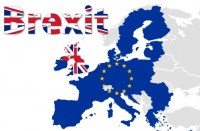While the United States formally recognised the People’s Republic of China as the legitimate government of China in 1978, Washington retains close relations with the Taipei separatist regime on the Chinese island of Taiwan. Under Donald Trump’s Presidency, the US is once again heightening tensions in the Taiwan Strait as it appears that Washington is walking back from its One China Policy. If the US follows through with its brazen attempts to sell billions of dollars in weapons to Taipei while committing breaches of the sovereignty of the Strait by sailing warships through Chinese waters, it can only be concluded that the US intends to provoke China by wantonly heightening military tensions without any thought for the long term strategic failure that such a policy entails.
Yet in spite of these provocations from Washington and from the Pentagon in particular, the American commercial sector is actually taking steps to respect the One China Policy in a spirit of realism and honesty. China has issued a statement directed to global air carriers that their ability to operate freely in China could be restrained if they continue to refer to the island of Taiwan as anything other than a part of the People’s Republic of China.
Most international carriers including from India, Australia, Germany, Britain and Canada were quick to comply with the request as were many US carriers. Now, the final three US carriers who appeared reluctant to make the appropriate changes, American Airlines, Delta Airlines and United Airways have at long last partly complied.
While major international carries complied fully with the agreement and now list destinations to airports in Taiwan as ‘Taiwan, China’, American Airlines currently lists ‘Taipei Taoyuan International Airport’ without mention the country the airport is in, while Delta and United simply list the city of Taipei and the airports international code.
As of 23.30 Beijing time on 25 July, the following screenshots represent how flight to Taipei are described on the three US carries in question:
While American, United and Delta have attempted to play their hand both ways, thus removing any indication of recognising of a separatist entity while still refusing to describe Taipei as a city in China, the recent amendments do demonstrate that in the private sector, various forms of pragmatism do tend to trump the provocative priorities of the White House and Pentagon.
The recent developments on the air carrier websites comes after China briefly suspending the website of the US hotel operator Marriott because the company had scandalously listed Tibet, Taiwan, Hong Kong and Macau as separate nations when in fact all are recognised by the United Nations as part of The People’s Republic of China.
As the United States is a country that tends to champion the virtues of the free market more than any other, libertarians and other market orientated individuals should be celebrating the decision of Marriott hotels, American Airlines, Delta and United Airways to withdraw references on their company websites which refereed to a part of China as a formally separate state.
Without any lawsuits, strong arm tactics or violence, a simple request from China has led to companies putting their lucrative business deals with Chinese people before ideological arguments that on an official basis the US should have settled in the 1970s.
This demonstrates that while for the Pentagon and Trump White House, Sinophobic policies are a matter of an obtuse zero-sum strategy to “contain” China, for the business community in the US and across the globe, the potential to pursue healthy economic relations with China represents a great incentive to make win-win arrangements when it comes to discarding outdated and inflammatory language in favour of the language of future cooperation and economic partnership.
In this sense, the private sector which many American analysts continue to praise has performed far more effectively and reasonably than Washington which continues to resurrect policies that should have been cast away permanently after 1978.



